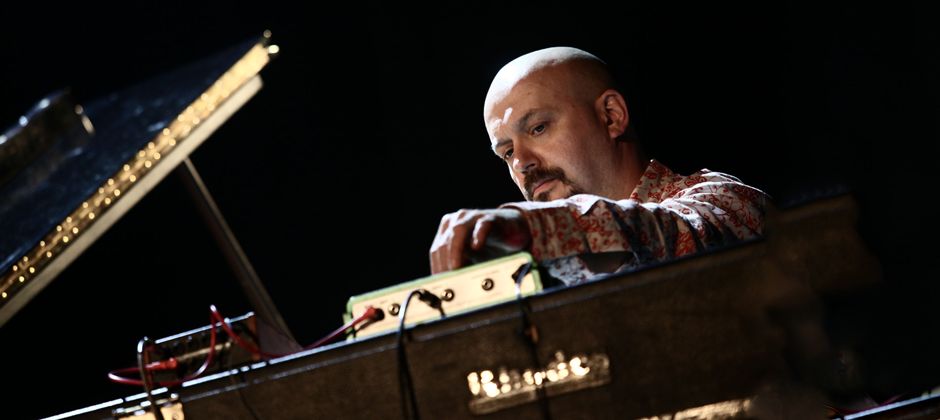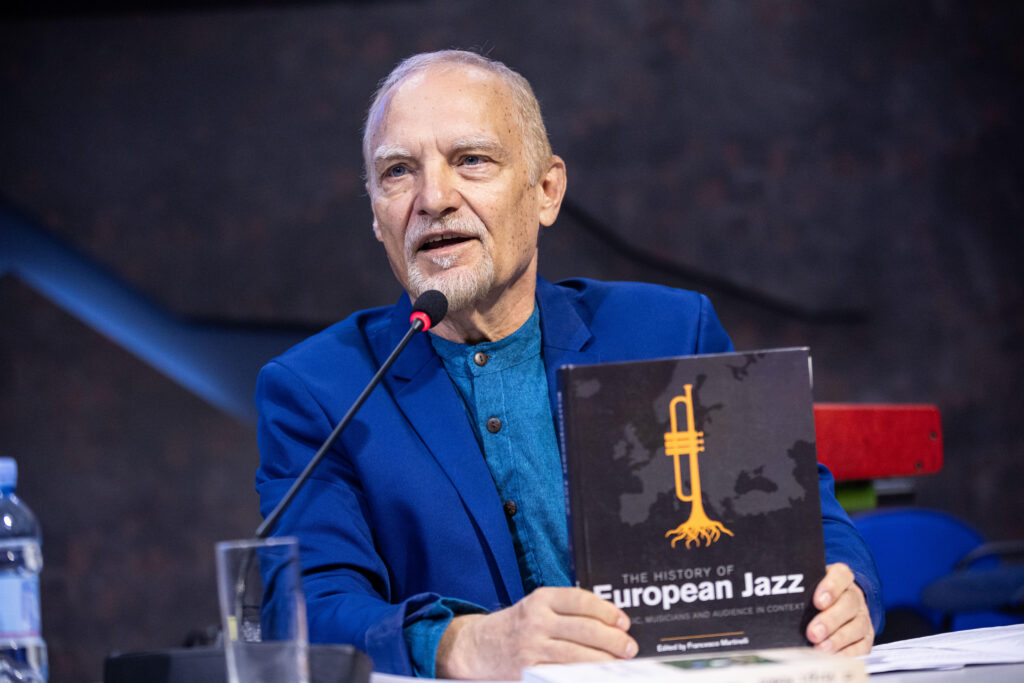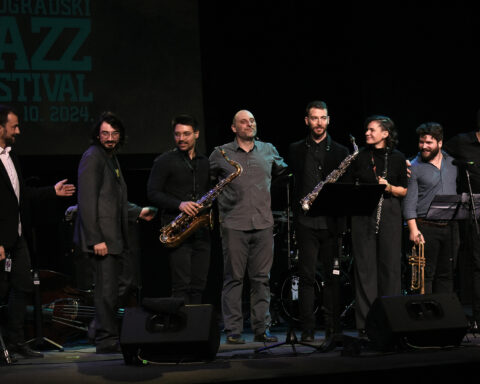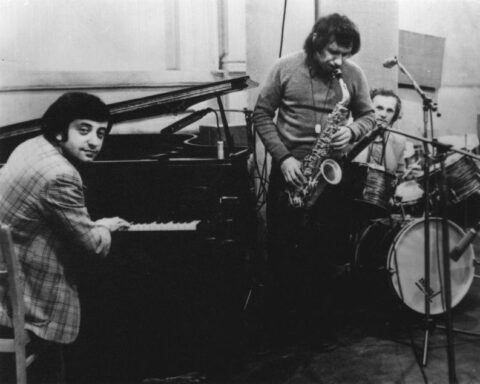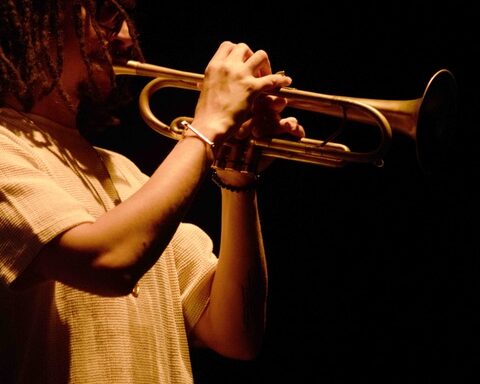Each new descent into Montenegro brings me emotional fulfillments similar to those generated by great music. That makes the exhausting journey with my own car worth it: two days (with a one-night stopover in Belgrade), from the Romanian 2,000 year-old city of Cluj to the heart of Montenegro.
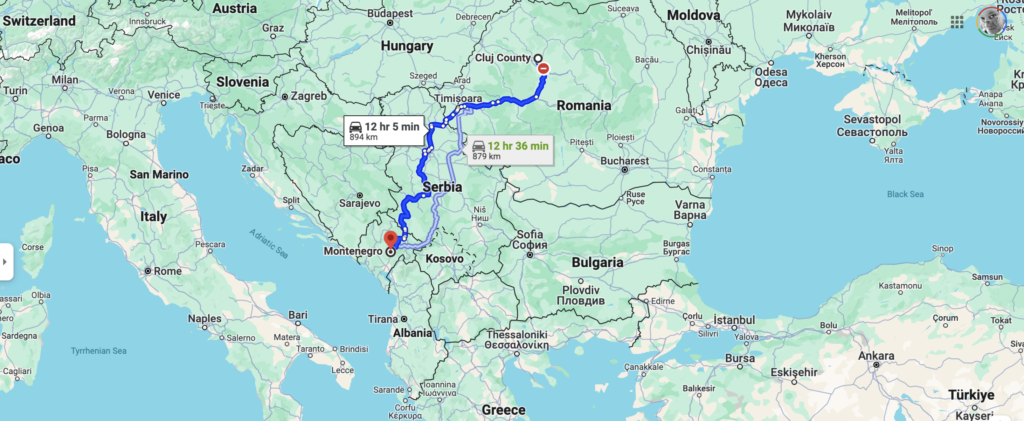
Nevertheless, my admiration for this country is not only due to its incomparable natural beauty, but perhaps most of all to its impressive capacity to function as a state worthy of civilized living standards. This, although its population (according to 2019 data) is only around 622,140 inhabitants.
It seems unlikely, but Montenegro manages to ensure the normal running of the economy, agriculture, transport, trade, infrastructure, education, tourism, the socio-political and medical sectors, the media, culture, sports, etc. In such circumstances, the existence of a jazz scene of its own (albeit of a discrete size) appears as natural. But, just like in other small states, such a thing would have been impossible without the involvement of some providential characters, capable of managing the relevance of this musical genre in an organizational sense.
In the present case, the one who has assumed the role of main coordinator is Maja Popovic. A graduate of piano studies at Montenegro’s National Music Academy and Paris’s Alfred Cortot Conservatory, she devoted herself fully to the music business after her homeland’s independence was regained in 2006. She coordinates the Jazz Appreciation Month (= JAM Montenegro) Festival every April, under the auspices of the non-governmental organization Jazz Art Association, which she founded.
JAM’s 17th edition was inaugurated on April 1, 2024 with a solo recital by pianist Bojan Zulfikarpasic (settled for over three decades in Paris, where he simplified his name to Bojan Z.). The artist soars over various stylistic beaches, remodeling them in an original way (consecutively or simultaneously) on the classical piano, the electric piano or through various synthesizers.
His music flourishes from its own complexity: deconstructed folkloric themes, avant-garde inserts, acoustic-electric unisons, cyclic motifs, ostinatos, contrapuntal lines reminiscent of Bach, but also braces towards
Ellingtonian swing, etc. It’s worth remembering that the pianist (born in 1968) was awarded the title “European jazz musician of the year 2005” by a demanding pan-continental jury (in which I had the honor of representing Romania).
For the world jazz community, the fact that such a consecration belonged to the representative of Bosnia and Herzegovina was a revelation. More than that: a new argument for comprehending the reality that, in the current century, outstanding jazz values can appear anywhere on the Globe.
Since 2010, the Ukrainian saxophonist Max Kochetov has been a member of the renowned RTS Orchestra (Big Band of Radio and Television) from Belgrade. At JAM 2024 he participated with his own quartet, oriented towards cerebral compositions granting ample spaces for the leader’s improvisational developments, in synergy with pianist Andreja Hristic and their empathetic guest from Switzerland, Samuel Blaser – a musician who knows how to make the most of the seductive characteristics of the trombone. Max Kochetov Quartet & Samuel Blaser gave two performances: the first in the KIC Hall (festival’s headquarters) in Podgorica, the country’s administrative capital, and the second in the 19th century Royal Theater in Cetinje, the historical capital of Montenegro.
Two other evenings were dedicated to groups initiated by Montenegrin musicians: that of drummer Slaven Ljuic (here playing a traditional Montenegran wedding song), secured the collaboration of a world-class bass player in the person of Linley Marthe (originating from Mauritius, member of the Joe Zawinul Syndicate from 2003 until the death of its leader in 2007. For its part, guitarist Ivan Marovic’s Quintet released its latest album, recorded in Cetinje together with colleagues from Montenegro and Serbia.
In recent years, since the Romanian Embassy in Montenegro has been headed by HE Viorel Matei Ardeleanu, my country’s cultural presence here has experienced a salutary intensification. Thanks to this propitious diplomatic involvement, the long-awaited (and applauded) concert of the Trigon band from Chisinau took place at last year’s JAM. In April 2024, the Montenegrin public welcomed the Bucharest-Parisian pianist Ramona Horvath with the same warmth.
Her individuality combines studies at the Bucharest National University of Music with her status as a disciple of Jancy Körössy, one of the founding fathers of Romanian-style jazz.
The program she proposed at KIC Podgorica blended resonances of classical or impressionist origin, with the flavor of basic jazz ingredients, such as spontaneity, blues and swing, in interaction with her stage partners, the excellent professionals Nicolas Rageau on double bass and Antoine Paganotti on drums. The Debussyan “Claire de Lune” was juxtaposed with inspiration from Bizet’s Carmen (not coincidentally, the Trio’s latest album is called Carmen’s Karma); echoes of Fauré were succeeded by those of Enescu; allusions to the aesthetics of Duke Ellington or Ahmad Jamal preceded a temperamental-Hispanic piece, or another in the spirit of samba, but to a Tchaikovsky tune! A climax was reached in the suite of jazzified Romanian dances in the style of Jancy. The elegance of Ramona’s musical approach suggested subliminal bridges between the cultures of France and Romania, already established in the beginning of the last century, when Bucharest was nicknamed “little Paris”.
The celebration of the International Jazz Day – April 30 – coincided with JAM’s final concert: the Meva Festa performance by French pianist/organist/keyboardist Laurent Coulondre and his colorful band. I’d say – an ideal programming choice, due to this ensemble’s exuberant character, bewildering “fireworks of sound” and contaminating rhythmic combinations. An infusion of positive energy and humor, most welcome during the threatening times we live in.
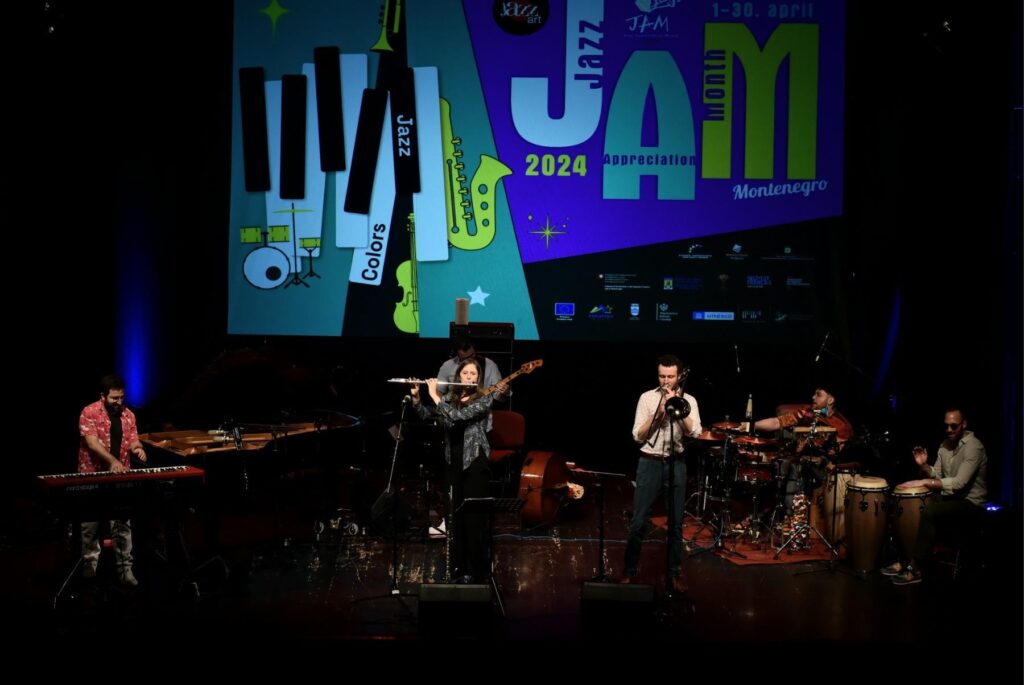
In fact, Coulondre and his accomplices carry out an operation to re-connect European Latinity – in this case, French and Catalan – to the magic of Latin American jazz (the very title of their recent album Meva festa, means “my fiesta” in Catalan). Since I did not have the chance to stay in Montenegro until the date of that concert, I reproduce the list of the band members as it appears in JAM’s program: Coulondre, piano and keyboards; Christelle Raquillet, flute; Cyril Galamini, trombone; Jeremy Bruyere, double bass; Adriano Dos Santos Tenorio, percussion and (pleasant surprise!) the Montenegrin drummer (educated at Berklee College of Music) Slaven Ljujic.
On a personal level, my main achievement was the continuation of the series of lectures that I have been delivering within JAM since 2011. This time I was invited to lecture in the hospitable European House (Evropska kuća) in Podgorica, where I enjoyed the cordial custody of Manja Babic, together with her team. The presentation was titled “The Fascinating Diversity of European Jazz,” in tune with the institution’s profile.
Among the video illustrations, I included a footage from 1983 exhibiting Yugoslavia’s Markovic-Gut Sextet, which included trombonist Nikola Mimo Mitrovic (1941-2010), considered to be the father of Montenegrin jazz. The videos featuring Carles Benavent/Spain, Palle Mikkelborg/Denmark, Bratislava Hot Serenaders and Peter Lipa/Slovakia, Marius Preda & Decebal Badila/Romania, Ewa Bem/Poland, Giorgi Mikadze/Georgia, Dmitrij Golovanov/Lithuania were also successful.
The evening ended with a pleasant jam session coordinated by Montenegrin pianist Enes Tahirovic. Along with his experienced compatriots Ivan Marovic and Milorad Jovovic, he also invited some of the younger students to whom he teaches the basics of jazz to play. I gratefully note that the success of the lecture was due, also to my technical assistant and invaluable lifelong companion Engineer Liana Baciu
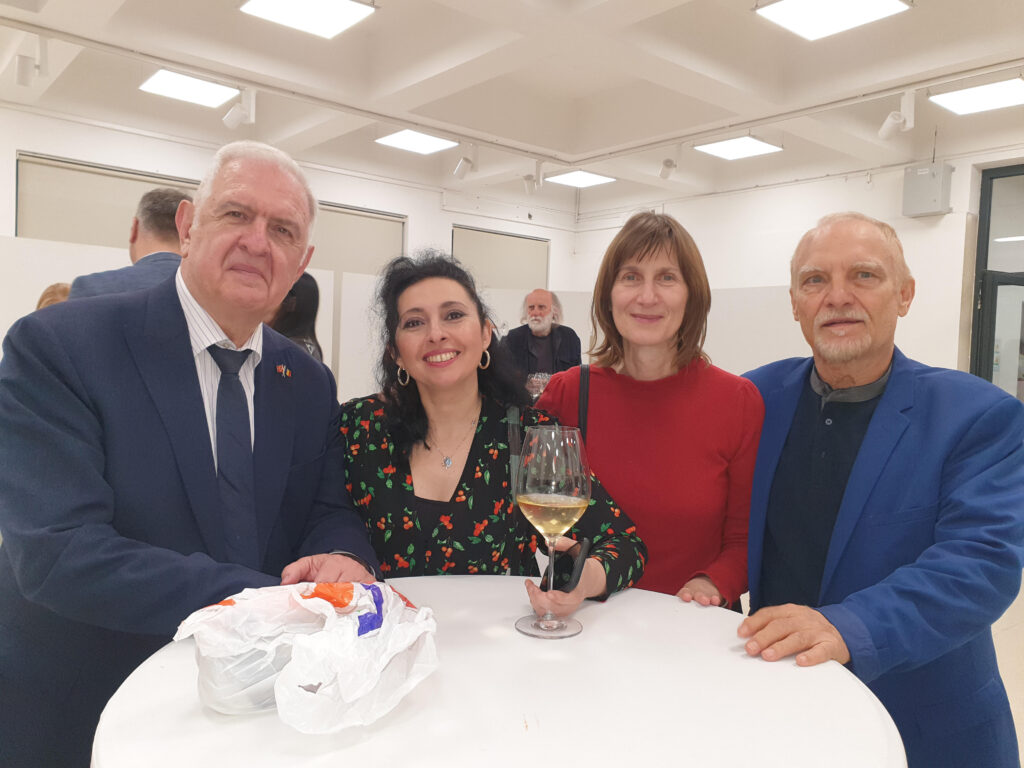
as well as to the excellent business cooperation between Maja Popovic, the European House and the Romanian Embassy, personally represented by Ambassador Viorel Matei Ardeleanu and by official translator Milica Rajkovic.
Clearly, in Montenegro jazz maintains a well-deserved cultural respectability.
Virgil Mihaiu has been a JJA member for some 30 years, supporting and reporting on music and other subjects. He is an internationally respected scholar of F. Scott Fitzgerald’s works, among many other credits.


